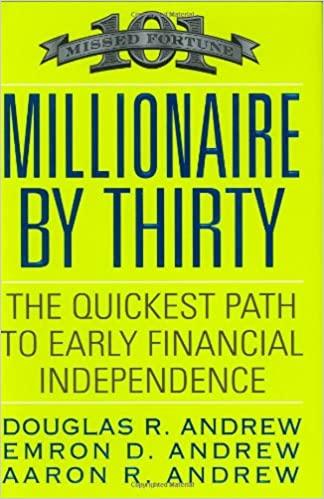Question
After last week's public relations debacle for United, it's safe to presume that carriers won't be dragging any more passengers off flights to free up
After last week's public relations debacle for United, it's safe to presume that carriers won't be dragging any more passengers off flights to free up seats for airline employees.
But what should be done about the continuing, and far more common, practice of overbooking?
The knee-jerk reaction is to ban it. The notion that a company would sell more product than it has strikes most Americans as unfair.
Without overbooking, however, airlines would either have to charge more to compensate for the empty seats of no-shows and last-minute cancellations, or stop selling the refundable tickets that are still the choice of business travelers in need of flexibility.
A better idea is to ban involuntary bumping.
Let's review a little history here. Back in the 1970s, after consumer activist Ralph Nader was bumped and took his case to the Supreme Court, the Civil Aeronautics Board ordered an auction system to deal with the problem of too many passengers and too few seats.
Higher offers raise costs: Opposing view
But the rules did not go all the way. The Department of Transportation, which took over what remains of airline regulation, caps the amount that airlines can be forced to pay at $1,350 per ticket. And airlines require passengers to agree to lengthy contracts of carriage that can further limit payouts.
The result is that, in 2015, some 46,000 people were involuntarily bumped from flights after airlines didnt get enough volunteers at the price they were willing to pay. Airlines point out that 46,000 is a tiny fraction of roughly 600 million tickets sold. But if you are one of those severely inconvenienced people, that's little consolation.
If all these customers relinquished their seats voluntarily for an average of an additional $500 a piece, the industry would have to pay $23 million. For an industry that has been netting in range of $18 billion to $20 billion in North American profits in recent years, that is a relative pittance.
In their efforts to limit the amount they have to pay, airlines are only outsmarting themselves. Whatever money they save is more than offset by the ill will they engender, particularly in an era when everyone has a smartphone and a way of sharing their outrage with the world.
When flights are overbooked, a smart policy would be for the Department of Transportation to take the auction process to its logical conclusion and require carriers to pay whatever the market demands to get enough people to give up their seats voluntarily. An even smarter policy would be for airlines to conclude that this is in their own best interest and do it voluntarily.
Please give a good title for this article?
Step by Step Solution
There are 3 Steps involved in it
Step: 1

Get Instant Access to Expert-Tailored Solutions
See step-by-step solutions with expert insights and AI powered tools for academic success
Step: 2

Step: 3

Ace Your Homework with AI
Get the answers you need in no time with our AI-driven, step-by-step assistance
Get Started


